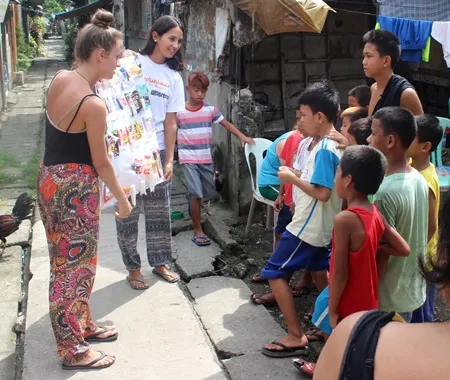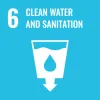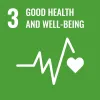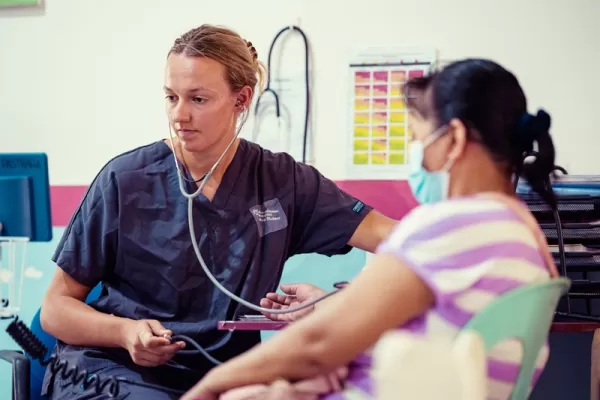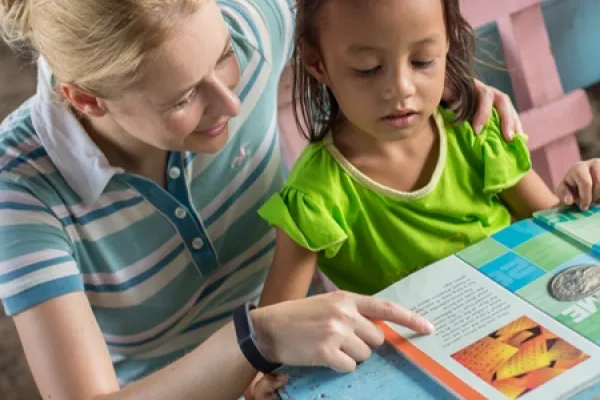Overview
El Programa de Nutrición y Salud Pública de Filipinas tiene como objetivo corregir y mejorar la situación de desnutrición de los niños, especialmente de los nacidos en comunidades de bajos ingresos. Este proyecto se orienta más a la sensibilización pública e incluye un programa de alimentación para niños desnutridos.
Su objetivo es educar a los padres, que son los principales cuidadores, sobre el valor y la importancia de una nutrición adecuada y cómo afecta a la salud en general. El proyecto puede sacarte de tu zona de confort, ya que te obligará a visitar el mercado público y cocinar platos filipinos con los que no estás familiarizado.
En el marco de este proyecto, los voluntarios de VolSol tienen que organizar seminarios y talleres para las comunidades locales y rurales y explicarles los beneficios de una dieta equilibrada y de mantener unos planes nutricionales. A través de estos talleres repletos de información, los voluntarios tienen que convencer a los padres de que creen un hábito alimentario rico en nutrientes vitales y nutritivo para los niños. Estos conocimientos se deben transmitir teniendo en cuenta que los lugareños no deben comprometer sus ahorros personales. Los objetivos del proyecto son dobles.
El primero es proporcionar un programa estable de alimentación suplementaria para lactantes desnutridos, niños en edad preescolar de 3 a 6 años y niños apadrinados en edad escolar.
El segundo es difundir información a los padres sobre la importancia de una nutrición saludable a través de una serie de talleres y seminarios.
A través de este proceso, los padres pueden presenciar la mejora que una buena nutrición tiene en la salud de sus hijos y al mismo tiempo aprender cómo utilizar mejor sus recursos disponibles para proporcionarles una dieta estable independientemente de sus ingresos personales.
Horario de trabajo voluntario
Horario de trabajo voluntario
Un programa típico de voluntariado bajo este programa es el siguiente:
Sábado/Domingo - Llegada
Lunes - Orientación. El coordinador local llevará a cabo una sesión de orientación que cubrirá temas como seguridad, cultura, idioma, lugares para visitar, comportamiento, comida y otras sugerencias sobre actividades para hacer en Filipinas.
De lunes a viernes - Trabajo Voluntario
Desayuno - 6:00 am
Trabajo voluntario: de 08:00 a 13:00 horas generalmente
Almuerzo - Después de las horas de trabajo en el proyecto (los voluntarios deben organizar el almuerzo por su cuenta. Pueden optar por ir a casa y cocinar el almuerzo o pueden comprar una comida en cualquiera de los establecimientos de comida más cercanos).
Cena - 18:00 horas en adelanteFines de semana - Libre para explorar la ciudad.
El mismo programa de trabajo voluntario continúa a partir de la segunda semana.
Nota: Tenga en cuenta que el cronograma puede variar según el proyecto particular en el que participe el voluntario.
Funciones y responsabilidades de los voluntarios
Funciones y responsabilidades de los voluntarios
Los voluntarios serán supervisados por el coordinador local y trabajarán junto a uno o dos voluntarios de nutrición más. Dependiendo del sitio al que se asigne el voluntario, puede trabajar por la mañana o por la tarde, pero siempre solo medio día de lunes a viernes, excepto durante los días festivos, durante al menos 4 horas diarias.
El voluntario es responsable de proporcionar comidas a los niños diariamente. Planificará el menú teniendo en cuenta las deficiencias nutricionales que se deben abordar. Comprará ingredientes locales disponibles en el mercado para complementar las necesidades nutricionales de los niños. Controlará el progreso de los niños midiendo su altura y peso para calcular el IMC.
Además, el voluntario debe enseñar a los niños a lavarse las manos y cepillarse los dientes correctamente después de las comidas al comienzo del proyecto y seguir practicándolo durante todo el tiempo. El objetivo es inculcar buenas costumbres en estos niños.
En lo que respecta a la planificación de los menús, los voluntarios deben tener en cuenta los recursos disponibles localmente que los niños comen normalmente. En primer lugar, la razón es que los niños solo comen los alimentos a los que están acostumbrados. En segundo lugar, es más probable que los padres no puedan permitirse comprar verduras y otros alimentos que normalmente no están disponibles localmente. El proyecto tiene como objetivo educar a los padres de tal manera que puedan reproducir en casa lo que los voluntarios están preparando en el proyecto.
Cada dos semanas se imparte una charla sobre nutrición para los padres de los niños inscritos en el programa. Siempre animamos a los voluntarios a empezar con temas básicos de higiene y nutrición. No todos los padres tienen un buen dominio del inglés, por lo que es imprescindible que las charlas sean fáciles de entender y estén repletas de ilustraciones. Durante las charlas y los talleres habrá un coordinador local que ayudará y traducirá.
A continuación se muestra una lista de tareas que realizarán los voluntarios en el marco de este proyecto;
Preparación de la alimentación complementaria
Registro y análisis del estado (altura y peso) de los niños en el proyecto
Iluminar a la gente de la comunidad sobre los beneficios de una dieta equilibrada y el mantenimiento de planes nutricionales.
Organizar seminarios y talleres para las comunidades locales y rurales.
Convencer a los padres de crear un hábito alimentario que sea rico en nutrientes vitales y nutritivo para los niños.
Project Requirement
Project Requirement
Los voluntarios deben tener 18 años o más al momento de unirse al proyecto y deben ser flexibles y tener la mente abierta para trabajar en un entorno nuevo y desafiante. El proyecto es adecuado para estudiantes de Ciencias de la Salud, Nutrición, Dietética, Salud Pública o nutricionistas y dietistas calificados. Cualquier persona con un gran interés en el campo más amplio de la salud comunitaria también puede unirse al programa.
Schedule a Google Meet with a Program Advisor
Interested in our programs? We're here to provide expert guidance
- Get Detailed Info
- 20 min One -on-One meeting
- Get expert advise
- Application Guidance
Photo Gallery


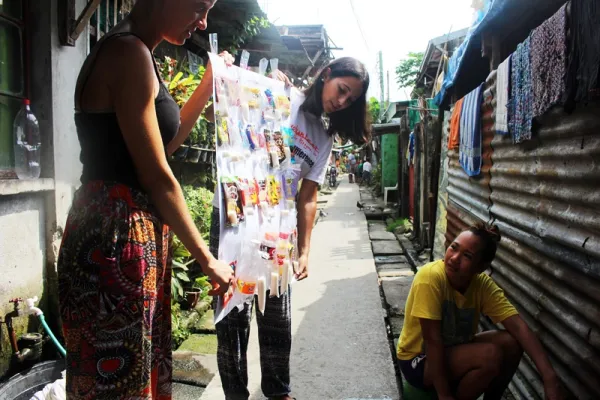
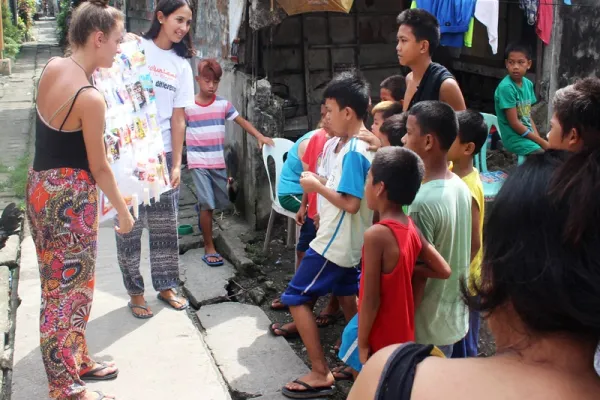
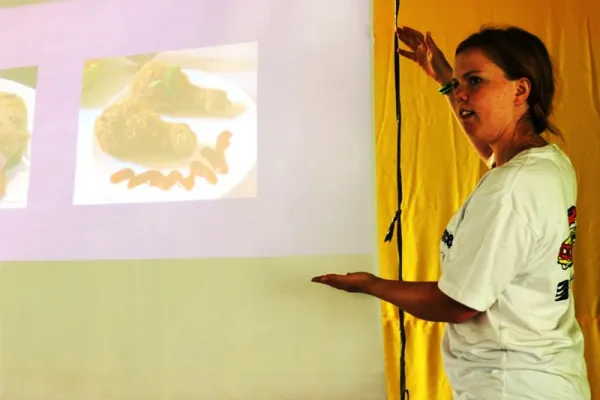
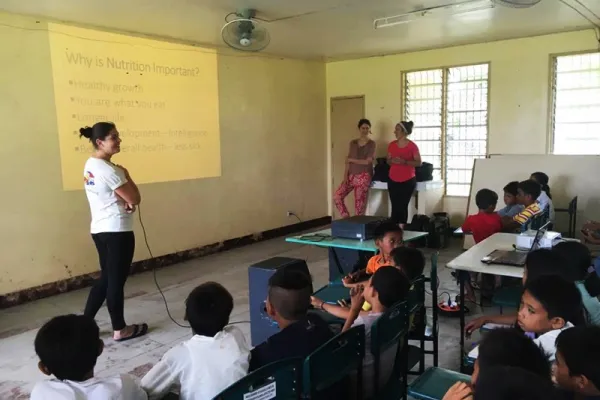
Living
Living
Cargando…
Recepción en el aeropuerto y entrega
Los voluntarios son recogidos y dejados en el aeropuerto de Tacloban por un miembro del personal representante local. Los voluntarios deben llegar un día antes de la fecha de inicio del programa.
Orientación
Todos los voluntarios reciben una orientación sobre la cultura local filipina, el dialecto local, las pautas de seguridad, el proyecto y la función y las responsabilidades de los voluntarios por parte del personal local. Los voluntarios también reciben un recorrido por la ciudad de Tacloban y todos los puntos de interés turístico importantes de la ciudad.
Alojamiento
Los voluntarios vivirán con familias anfitrionas que residen en el área de Tacloban. Las estadías en casas de familia han sido evaluadas exhaustivamente antes de ser aceptadas en nuestro programa de alojamiento en familia. tienen experiencia en dar cabida a voluntarios internacionales. Antes de su llegada, recibirá un perfil que describe los detalles de su familia anfitriona. Su familia anfitriona lo recibirá en su hogar y lo tratará como miembro de la familia. Al vivir con ellos, podrá experimentar la cultura filipina y participar en sus actividades diarias. Comerás la misma comida que están comiendo, aunque tu familia anfitriona sabe lo que a los extranjeros les gusta comer. Si tiene requisitos dietéticos especiales, es mejor que nos informe previamente para que podamos satisfacer sus necesidades. Se le servirán solo dos comidas por día, desayuno y cena. Su familia de acogida también le proporcionará agua potable filtrada, ya que es mejor no beber agua del grifo. Todas las casas de familia tienen electricidad y agua corriente. Tendrás una habitación privada o compartirás con un compañero voluntario. También se le proporcionará una mosquitera y ventilador eléctrico. El baño o el inodoro, comúnmente llamado "habitación de confort o CR" se compartirán con todos los miembros de la familia.
El baño es básico y el voluntario tomará baños fríos con balde porque las duchas calientes son poco comunes en los hogares filipinos. No se preocupe demasiado por esto, ya que los baños con balde frío a menudo son refrescantes después de estar todo el día bajo el calor tropical. Finalmente, los voluntarios también tendrán que acostumbrarse al sonido de los gallos cantando incluso antes del amanecer.
Comidas
Durante su tiempo como voluntario, su familia le proporcionará dos comidas al día (desayuno y cena). Aparte de esto, su familia de acogida también le proporcionará acceso a agua potable. Todas las comidas se servirán con arroz y generalmente incluyen pescado, pollo o cerdo. Las familias anfitrionas pueden atender restricciones alimenticias especiales, sin embargo, le solicitamos que lo incluya en el formulario de solicitud.
Durante tu tiempo libre
El equipo local de coordinación en Filipinas organiza dos excursiones para los voluntarios. En uno de los viajes, los voluntarios visitan las áreas locales de interés, como el Puente San Juanico, el Santuario Santo Nino y el Parque Conmemorativo MacArthur Landing. Los voluntarios tendrán la oportunidad de experimentar la belleza natural de la isla tropical de Leyte.Dates
Dates
January
05
12
19
26
February
02
09
16
23
March
02
09
16
23
30
April
06
13
20
27
May
04
11
18
25
June
01
08
15
22
29
July
06
13
20
27
August
03
10
17
24
31
September
07
14
21
28
October
05
12
19
26
November
02
09
16
23
30
December
07
14
21
28
January
04
11
18
25
February
01
08
15
22
March
01
08
15
22
29
April
05
12
19
26
May
03
10
17
24
June
07
14
21
28
July
05
12
19
26
August
02
09
16
23
30
September
06
13
20
27
October
04
11
18
25
November
01
08
15
22
29
December
06
13
Available
Filling Fast
Booked Out
Costs
| Duration |
Program Fee
|
Choose your currency
|
|---|---|---|
| 2 Weeks | $890 | |
| 3 Weeks | $1040 | |
| 4 Weeks | $1190 | |
| 5 Weeks | $1340 | |
| 6 Weeks | $1490 | |
| 7 Weeks | $1640 | |
| 8 Weeks | $1790 | |
| Extra Week | $200 |
Please Note: An application fee of is charged over and above the program fee as an application payment. A 5% international banking fee is charged for credit card payments of program fee in USD/AUD.
¿Qué estás pagando?
- Recogida y regreso al aeropuerto
- Orientación de bienvenida – Orientación del programa
Visita de la ciudad y orientación sobre prácticas - Alojamiento en una familia anfitriona filipina
- 2 comidas al día
- Paquete de información detallada previa a la salida
- Colocación del proyecto
- Asistencia y apoyo las 24 horas del personal en el país.
- Seguro médico y de viaje (disponible con un coste adicional)
- Certificado de participación (a solicitud)
¿Qué NO está incluido?
- Visa
- Vacunas
- Vuelos
- Transporte local
- Gastos personales
FAQ's
Health and Safety
-
Do I need to buy health insurance?
-
Yes, for all participants it is mandatory to have a travel medical insurance. Volunteers have the option to purchase Travel and Medical Insurance at a nominal extra cost from Volunteering Solutions. To provide the best option to our participants, we offer comprehensive insurance coverage in collaboration with a leading insurance provider.
-
How safe is the Philippines and Tacloban City in general?
-
Tacloban City is a tourist friendly city and Philippines is a largely safe country. The Volunteers are, however, advised to travel in groups, not venture alone at nights and take the basic safety precautions. All volunteers must consult the coordinators before planning a night out and take the necessary safety tips, too. Leyte Island is generally safe for travelers. As with any other country, tourists and visitors must always take precautions when traveling abroad.
-
What immunizations/vaccinations will I need?
-
We recommend you to consult your physician or travel doctor before traveling to the Philippines. However, we recommend you take general vaccinations like
1. Hepatitis A and B
2. Typhoid
3. Malaria tablets
Yellow Fever vaccination is required for travelers who are arriving from, or have transited through, countries with risk of yellow fever transmission.
Application and Program Details
-
How long will it take to process my application? Will my application be accepted?
-
Usually, it takes around 10-12 working days for the application to be processed and placement to be confirmed. After the application is accepted, your placement document shall be updated in your account online and you can view the information in your account. The application acceptance depends on the availability of seats in the project as well as the eligibility criteria of the program (age, skills and experience etc.).
-
For how many hours will I volunteer every day?
-
Volunteers usually work for 5 to 6 hours a day depending on their program. You will have the weekend off so you can go to travel on weekends. However, volunteers need to be flexible, open minded and understand that work requirements can change as well on certain occasions.
-
When should I apply for the volunteer programs in Philippines?
-
For programs in the Philippines, it is advised to apply as soon as possible after you have decided on your choice of program and the desired dates. Every program has limited number of spots available and due to this reason, volunteers are requested to book their spot as soon as the dates are decided. We abide by the first come first serve policy.
-
Are there any necessary requirements to participate in the Philippines -Tacloban City volunteer programs?
-
Below are the necessary requirements to participate in the Philippines volunteer projects:
Volunteers must be 18 years or older at the time of joining the project.
Volunteers need to have an open mind and flexible attitude for working in a new and different environment. The volunteers should bring energy and enthusiasm to make a difference.
Participants must be in good health.
Participants need to provide a copy of their Resume/CV as well as Criminal Background Check Report for those participants working in projects with children. -
What are the program locations in Philippines?
-
The projects are based in Tacloban City on the island of Leyte in Eastern Visayas. Tacloban is approximately 360 miles southwest of Manila and is well-known as the site of U.S. General Douglas MacArthur’s Leyte Gulf Landing, which marked the start of a fierce campaign to regain the Philippines from Japan during World War II.
-
Can I volunteer as part of a group?
-
Yes, you are welcome to take part in Tacloban Volunteer Program as part of a group. We welcome families, friends, high school students, college/university and corporate groups to volunteer together in the Philippines program. We can provide customized group volunteering opportunities depending on the group’s requirements and suitability.
-
Can I know more about Tacloban?
-
Tacloban also is the site of the prestigious San Juanico Bridge, which is the longest bridge in the Philippines. This bridge connects the islands of Leyte and Samar and is a key link in the Pan-Philippines Highway, which connects the Philippines islands of Luzon, Samar, Leyte and Mindanao through a network of roadway, bridges, and ferries.
Tacloban is the capital of Leyte Province and has a population of about 240,000. It is not a popular tourist destination and does not attract many foreign visitors. For this reason, Tacloban offers our international volunteers an opportunity to be immersed in a unique Asian culture. -
When do I need to arrive in Tacloban for my program? What will happen once I arrive in the city?
-
All volunteers need to arrive in Tacloban on the starting date of the program. Volunteers are picked up by the local coordinator or representative from Tacloban airport and are taken to the host family accommodation. Once you come out of the airplane, you will be directed to enter the airport terminal through the back of the building, as the airport is not fully repaired from the damages sustained during the typhoon in November 2013; though it is getting better. At the exit area, the local staff representative will be waiting for your arrival with a sign board. After receiving, you will be taken to the community where most homestays and the main local office are located. The ride is about 10 to 15 minutes long.
Flights and Visa
-
Do I need a Visa to travel to Philippines?
-
Citizens of most countries can enter the Philippines and get a Visa on arrival at the airport for a period of 30 days. Your passport should be valid for a minimum period of 6 months from the date of entry into the Philippines. Visas can also be extended while you are in the Philippines. Volunteers participating in the long-term programs can apply for Visa beforehand at the nearest Philippines embassy.
-
What are the recommended airlines to fly to Tacloban, Philippines?
-
You will need to arrive in Manila and from there take a connecting flight to Tacloban City. Manila is well connected with direct flights from major international locations. The Daniel Z Romualdez Airport (Airport Code: TAC) in Tacloban is the main gateway from Manila and Cebu to the Visayas Region. AirAsia Zest, Pal Express, Philippine Airlines, and Cebu Airlines have flights from Manila to Tacloban.
Accommodation and Living
-
How do I get to the program location?
-
Your project coordinator will take you to your placement and introduce you to everyone after giving you a basic orientation about the program/city/culture etc.
Before starting your project, you will be given an extensive orientation that will include how to get to, and back from, your project; how to get to, and back from the downtown - the location of ATMs, restaurants, souvenir stores, and where money changers are, as well as a brief introduction to Filipino culture and etiquette.
The 'Jeepney', a colorful bus made from former U.S. Service vehicles is the most common form of transportation in the Philippines and covers short to medium sized journeys. This is the most common mode of transport for the volunteers in Tacloban.
For longer journeys, there are conventional buses, whilst motorcycles, tricycles, and private hire taxis, called 'Spider Cabs', can also be used for midrange journeys. If you're looking to just go down the road, you can ride a pedicab, a converted bicycle with attached sidecart. -
Can I know more about accommodation and food arrangements?
-
Volunteering Solutions arranges accommodation for volunteers with a local Filipino host family in the local community. Staying with a local family is exciting and a part of the cultural experience and immersion as you get to know about their way of life, customs and traditions.
These are screened, well respective members of the local community who have been accommodating volunteers for many years. You will be given either a private or shared bedroom in which you will have a secure luggage storage (bring your own padlock), mosquito neck and electric fan. You will also have access to safe drinking water.
We ask volunteers to be considerate regarding their electricity consumption.
Volunteers will be provided with two meals a day (breakfast and dinner), these meals will vary but will usually be traditional Filipino meals, be prepared to eat a lot of rice! -
Will I have access to the internet?
-
The local partner office currently has internet access and wifi capabilities, but volunteers should be mindful of their internet use since the staff members are also sharing the internet connections for general business operations. Volunteers can also visit a handful of coffee shops in downtown Tacloban (our volunteer coordinator will show you how to get to and from downtown during your city tour), which is a 15-25 minute ride from your homestay, that have wifi connection, as well as small internet cafes where you can pay per hour for computer/internet use.
-
Would I have free time during my program ? Can I do sightseeing during my program ?
-
Volunteers do get weekends free for doing sightseeing and socializing with other volunteers in the program. Tacloban City has amenities for almost every kind of traveler, from the Robinsons Shopping Mall to beautiful sun-swept beaches on the outskirts of the City. What you get up to during your time off is completely up to you, however, our staff can provide you with help in planning your trip.
Volunteers also enjoy relaxing at the many beach resorts, most predominantly the Tadjaw beach resort near the municipality of Tolosa. For those of you that are looking further afield for more exciting opportunities, you can plan a weekend getaway to Cebu, or to visit the Chocolate Hills on Bohol or the Sohoton Caves on Samar. -
Will I have access to clean drinking water?
-
All homestay families will provide clean drinking water for their volunteers. Mineral water is also widely available in small shops throughout the neighborhood as well as at larger grocery stores. When being served water at restaurants it is always important to ask if the water is mineral water and if the ice is made from tap water.
-
Are there more expenses once I arrive in Tacloban City?
-
Your program fee does not cover your personal expenses. You will need to cover yourself for your personal expenses, such as local transport, telephone, the internet, shopping, sightseeing etc. However, you should carry around $50-$70 per week for your basic personal expenses. This amount can vary and you would need a higher amount if you go on different weekend trips out of town.
-
What all are included in the fee I pay?
-
You Program Fee includes your Pre-Departure booklet, airport pick-up once you arrive in the Philippines, orientation about the project and a city tour on the first day. It also includes your accommodation on same gender sharing basis as well as meals as mentioned in the program schedule.
We can arrange for airport drop at an extra cost.
Connect with Past Volunteers
-
How can I connect with past Volunteering Solutions alumni as well as other former and current volunteers ?
-
We encourage volunteers to get in touch with former Volunteering Solutions participants and also other program participants joining our projects. You are recommended to join thehttps://www.facebook.com/VolunteeringSolutions/">; Volunteering Solutions Facebook Page or Facebook">https://www.facebook.com/groups/VolunteeringSolutions/">Facebook Group to communicate with other participants.
To read alumni interviews from past participants, visit the Meet">https://www.volunteeringsolutions.com/meet-a-volunteer">Meet a Volunteer section on our website.


























